American filmmaker Alexander Payne once spoke about how important a film’s setting is to the audience’s level of involvement. He said: “When the story happens in a place I’d like to go, and among a class of people who are complex in their relationship to that place, it makes the story even more interesting to me.”
Now I don’t know about you guys, but I’ve always wanted to go to outer space. That’s why stories — be they fantastical or realistic — set in that vast expanse of mysterious, inky emptiness never fail to get my attention. It’s not called the final frontier for nothing. There’s something simultaneously romantic and terrifying about the great yonder. For thousands of years, mankind has been looking up to the stars in awe, wishing to touch the untouchable.
“Gravity” took me there.
Okay, so Cinema as an artform is supposed to deliver escapism anyway. Since Georges Méliès made “A Trip To The Moon” way back in 1902, audiences have been taken on countless flights of fancy to places far beyond our planet’s reaches. This film however, brings escapism to a whole new level. For a good 90 minutes, I was left practically breathless at the experience crafted by director Alfonso Cuaron. There were moments where I completely forgot I was watching a movie. Call it hyperbole if you want — as far as I’m concerned this was an out-of-body experience.
Case in point: the stunning opening sequence that flows continuously for 13 minutes, seemingly in one take and without a single cut. The camera constantly hovers and circles around a small team of NASA astronauts on a mission at the Hubble Space Telescope, making it look as if Cuaron took his cast and crew into space and shot there on location. That’s how real it feels. The mission is hit by a devastating freak accident and things suddenly go from intimate to epic. This whole segment plays out in real time, and through it all Cuaron puts us right in the thick of the action.
The mistake a lot of directors make in trying to generate excitement and urgency is to over-embellish, either by cutting too rapidly or shaking the camera too much. Not Cuaron. This guy is the king of the long, steady take. From the car ambush sequence in “Children Of Men” to the work here, he orchestrates his shots in a way that not only oozes detail but enables and sustains nail-biting tension. Then there’s the groundbreaking visual effects, filling all the gaps in reality with imagery that’s flat-out astounding. If like me you’re an avid armchair student of the art & science of filmmaking, this one sequence will serve as a masterclass. Heck, it even schools a lot of the big-shot filmmakers out there. To the point where James Cameron has kowtowed to “Gravity”, calling it the best space film ever done (nevermind the fact that he was a consultant on the production).
I’m sure Cameron wasn’t referring only to the technical brilliance either. Like Payne, he finds interest in settings that put characters in a state of conflict or adversity (eg: Cameron’s “The Abyss” and “Avatar”, Payne’s “The Descendants”). And on a surface level alone, this is a riveting survival story. It’s not content to be merely that of course. Beneath the surface, there is depth to be uncovered. You don’t even need to look very hard, as some of the themes are pretty on-the-nose. Sandra Bullock plays the main protagonist Dr. Ryan Stone, and at the beginning of the film she is a damaged soul. Physically she may be up in the heavens, but emotionally she remains earthbound by a tragic incident in her past. And letting go is the film’s most blatant theme. Cuaron also plays up certain visual analogies to signpost the character’s arc, like the shot of Bullock curled up foetus-like in zero gravity. Essentially telling us that from a faint echo of a person, she grows into someone who genuinely comes alive.
Actually, I’m a bit surprised by his choice to go big and broad since Cuaron (who co-wrote this with his brother Jonas) tends to be a more subtle storyteller. As a form of characterisational shorthand though, it’s effective. We’re given just enough insight into Stone for us to sympathise with her. Which is absolutely essential in a movie like this.
To give credit where credit is due, Bullock is the bigger reason why we want the character to succeed. Carrying almost an entire film solo is never an easy feat, and Bullock’s always been more comfortable having another actor to bounce off. Yet her performance here really gives the film its heart. She projects a vulnerability that is quite disarming and when things come to a head in one pivotal scene, it’s heartbreaking to witness. She also handles the intense physical demands of faking weightlessness like a boss. Bullock may have won an Oscar for “The Blind Side” but make no mistake, this is the role she will be remembered for, and I suspect, one that will shape her career moving forward. In a smaller supporting role, George Clooney is his usual charming self. He captures the calm confidence of real NASA astronauts in crisis situations, while managing to slip in a bit of much-welcome humour here and there.
Clooney’s character also serves to draw out the film’s other central themes of faith and spirituality. Without giving too much away, I’ll say that there’s a scene where he provides Stone a helping hand and it is pretty much impossible… until you realise this is yet another instance of the filmmakers addressing Stone’s inner journey. Whether that scene is down to divine intervention or simply a personal moment of clarity, you may interpret it according to your own belief system and it still works. It feels like Cuaron leans towards the former, peppering the film with religious iconography (Christ and Buddha kind of show up).
He even makes the view of our planet come off like a deeply spiritual experience. Together with cinematographer and fellow Mexican Emmanuel Lubezki, Cuaron paints some breathtakingly beautiful portraits of Earth from orbit. And that’s another thing I love about this film. It’s not afraid to pause for the quiet little moments of reflection. That’s when the filmmakers reward us with some truly poetic visuals. Teardrops floating in zero G. Ice crystals forming an intricate pattern on glass. A web of city lights glittering through the darkness of Earth in nightfall. All the while, Steven’s Price’s lush score carries the emotional beats both big and small.
Along with “Children Of Men”, Cuaron has now made two of the most essential science-fiction films* of the last 10 years. In fact, this is one for the ages. It’s one of those rare works that successfully combines intelligence and sensitivity with popcorn pleasures. A thinking man’s blockbuster, if you will. It’s totally deserving of the current hype and inevitable awards glory. While all those will fade in time, the film’s power to pull you in and keep you enthralled will remain. “Gravity” is a masterpiece.
*Note: Since the film’s release, I’ve been hearing criticisms over its scientific inaccuracies; the biggest gripe being the vast distance in orbital planes of the various space stations, which in real life would’ve made the characters’ survival plan unachievable. While the film does get some stuff wrong, it’s not that big a deal. For one, it’s acceptable to take some creative liberties in any non-documentary work, no matter the commitment to veracity. Secondly, I consider “Gravity” to be science-fiction (there’s a whole debate on whether it is, btw). Here’s why. The US Space Shuttle program was shut down in 2011, and the Chinese space station Tiangong 1 featured here didn’t exist at the time of the last NASA mission to the Hubble telescope in 2009. Bottom line is, these events could never have happened in our timeline. So the way I see it, this is set in the near future where the Americans have resumed their space program and governments have worked together to align their respective space stations… which also allows some of the tech seen here to exist. And since it’s all speculative it therefore qualifies as sci-fi. Ok, geek rant over.

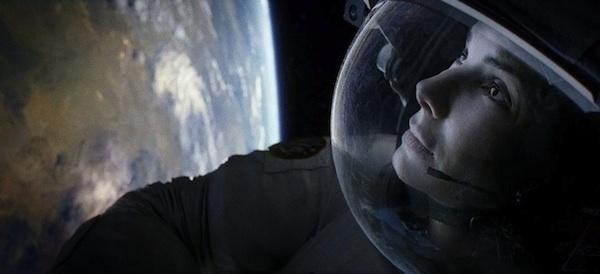
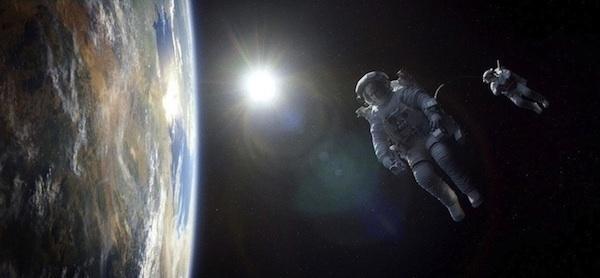
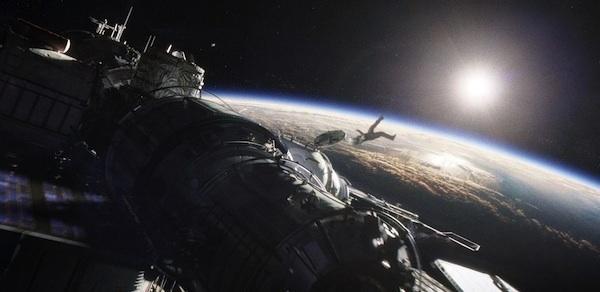
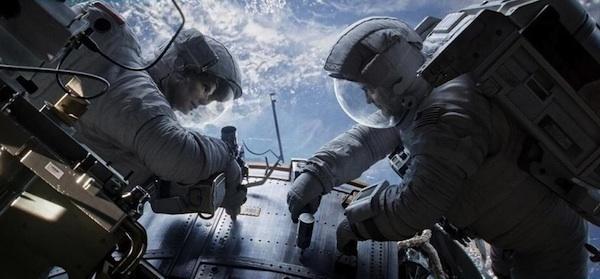
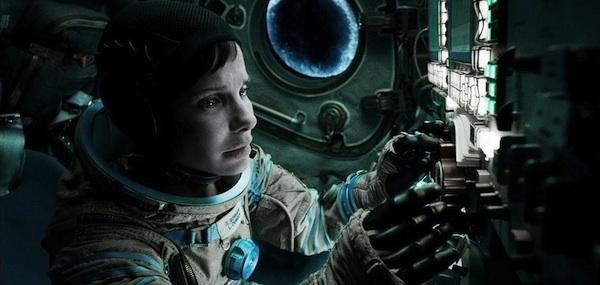
Hi Girls generation, apologies for the late reply as I did not see your comment earlier. Thanks for the comments. As for the Oscar nominations, they've not been announced yet but everyone in the showbiz industry is saying Bullock is a sure thing for a nom.
Saw this last night and wow wow ur right! Its an awesome movie!! Sandra was great. Is she nominated for best actress oscar?